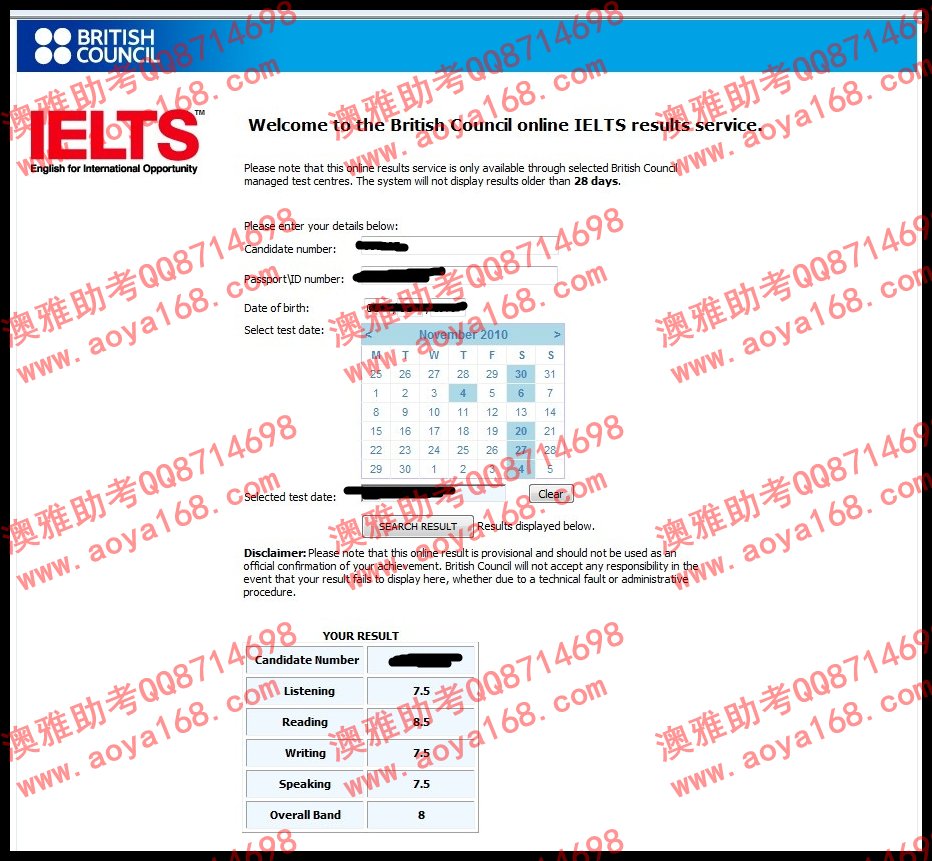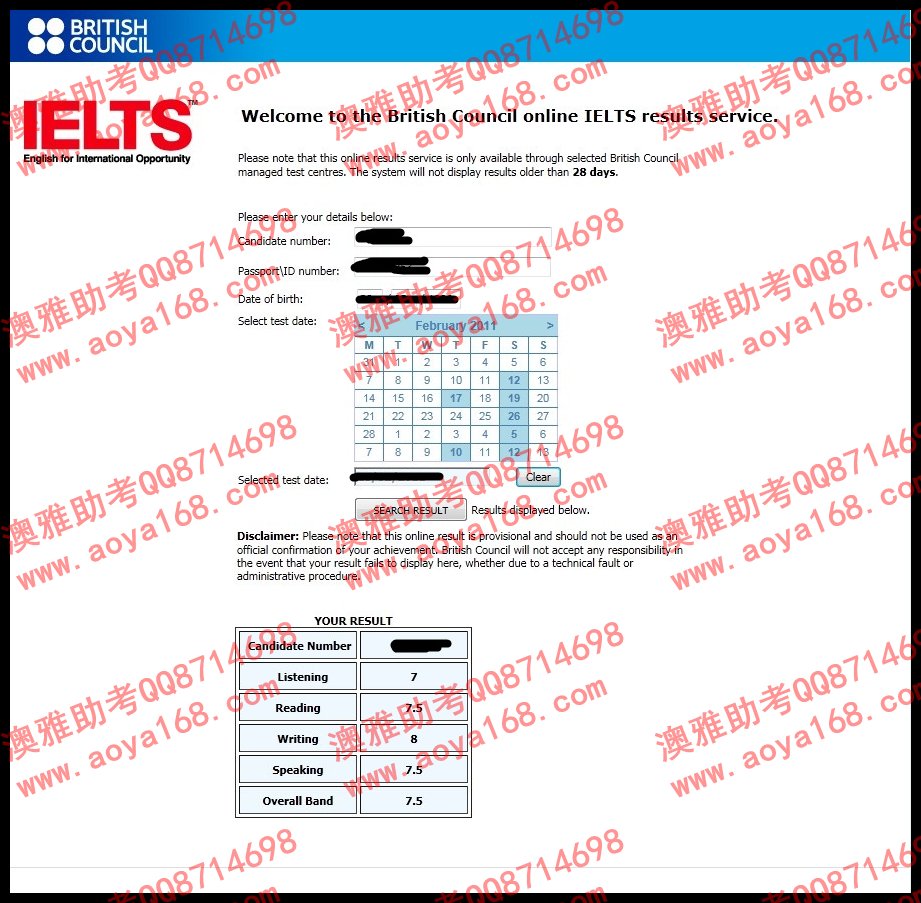澳雅助考,成功选择!
为商者,诚信根基,方可久存!
专业操作雅思,托福,GRE等出国类考试,零风险,成绩合格后付款!微信:aoya168
一个身高180,长相像言承旭的一个大帅哥写的雅思7分作文,才貌双全啊!本站唯一原创,真正的实力澳洲雅思移民雅思替考
发布:aoya168 | 分类:雅思考试 | 引用:0 | 浏览:
5 Dec 2014The gap year, in the past, was a norm practice among European aristocratic students who spend a year touring the entire Europe before entering university. In modern days, gap year’s popularity still catches on as it benefits all students, enabling them to choose their future career less blindly and explore various possibilities in life as young as possible.
Evidently, taking a year off between secondary school and university to travel around would leave students in a more informed situation to decide what to do with their college years and beyond. Travel, in itself, is self-enriching experience, especially for students who have spent most of their time at home and in schooling. On top of expanding their horizons, they would learn that there are numerous ways of living and value systems that look at life with different perspectives. Travel also unloads students of their daily studying routine and allows them to think about their college majors and future careers more clearly. Coming back with all these cultural experiences and a clear-cut picture of the future well thought through during the trip, students will surely be able to make a sound decision on what to study at college with a better view of what to do as a career.
Even if the gap year is not spent on traveling, instead, it is spent on working, or even try starting a new business, it would give students the opportunities to test their mettle, and decide what types of job are suitable for them as early as possible. Taking the precious one year to experiment with various kinds of jobs from menial ones like dish washing, table waiting to white-collar ones like file processing or office assistant would give students a basic ideas of what it feels like to hold a job. What’s better, they can use the one year gap to carry out their dreamed project if there is one. Using the gap year to start doing what they have always wanted to do, like trying their big ideas in a startup company or becoming an independent designer, will answer their long-standing questions of “what if” and test whether their personalities are fitful for the roles they have dreamed of.
In summary, gap year benefits students in terms of their choices of future majors and careers, what’s more importantly, this allows them to experiment their ideas and test their personalities as early as possible, which would prove to be too late and too costly for them after graduating from college or later in life.
aAssessment:
Task Response:
the examiner is looking for 4 things:
• Answer to all parts of the task (you covered all keywords, both topic key words and goals keywords)
• Present a clear position throughout the essay (state your position in the introduction, explain in detail this position in the body, and reiterate this position in the conclusion)
• Extend support main ideas/topic sentences (includes language that tell you to support ideas, appropriate tones and viewpoints, and examples from experience)
• Write enough words (should be at least 150 for task 1 and 250 for task 2, should not be wordy) 7.0
Introduction: you have covered the topic very well.
Body: presented ideas about the topic well, covered the necessary requirement of the task. Explained in detail your position on the topic.
Conclusion: good conclusion. Sometimes readers want to be challenged in the end, sometimes they want to think of something out of the ordinary about the topic if there is, and if you can try to apply your essay to convey information to the readers.
Useful tips: Try to plan before you write or start your essay give a minute or two to think. Then write down the advantages and disadvantages of topic, to have an idea of the things that you'll write.
Cohesion and Coherence:
the examiner is looking for 3 things:
• Paragraphing (has a clear topic sentence or main idea which should be the first sentence; with enough details and examples; with closing sentence)
• Logical organization of the essay (main ideas should be progressing meaning one paragraph is linked to the others especially to the central idea or position in the introduction)
• Cohesive devices need to be used well (sentences should be linked smoothly to each other, the easiest way to do this is with conjunctive adverbs, but there are better ways like repetition of key phrase/words, synonyms, pronouns, sentence patterns) 7.0
Plan word groups that go with the topic sentence. Give a good introduction, write 3 to 5 sentences as your intro. Just say what are the things you are going to talk about on your essay. Don’t give out details yet, just main idea.
It is important to plan first, to have a logical essay, not a rumbled jumbled one. Try to picture out everything first to cover the topic well.
Lexical Resource:
the examiner is looking for 4 things:
• Range of vocabulary (uses less common words, words used precisely, minimal repeated words, not wordy)
• Spelling (frequency of error)
• Collocation (word combination makes sense, not just one correct word but a group of correctly related words)
• Word families (words are in the correct form, correct parts of speech)
7.0
Have time at the end to check your work. Check spelling, punctuation and spacing. Good choice of words, but if the idea of the sentence is not that good, your word choice will not stand out or will lose its value.
Grammatical Range and Accuracy:
the examiner is looking for 4 things:
• Accuracy of grammar (how many sentences are error free, what kinds of mistakes were committed, accuracy of simple and complex grammar, )
• Range of grammar (uses more complex structures, sentences are clearly organized) 7.0
You have very minimal errors in in your work, use of more complex structures.
Try to see others work for added idea.
Good job!~
.
Tips:
*write intelligent sentences
- Do not write sentences which are too obvious, too simple.
- Basic sentences have poor content and thus are boring to read.
Ex: Nowadays everyone like to listen to music.
*ask yourself Who/why/how questions??? To write a good sentence.
Ex: Nowadays everyone likes to listen to music as it offers us entertainment
And relaxation in our busy modern life.
*do not use contractions:
Ex: Don’t, Can’t, shouldn’t, wouldn’t, isn’t, haven’t, hasn’t…
*Avoid there is/there are
Ex: There are many issues that students face at university. (Poor form)
Students face many issues at the university. (Good sentence)
*Avoid words like; Really, very, a lot, so
Ex: Many students think university is very hard difficult.
*passive vs active voice, always use “active voice”
Ex: Healthcare reforms were implemented by Obama. (Passive)
Obama implemented healthcare reforms. (Active)
*Use strong verbs
Ex: weak verb- He gave assistance to my friend
Objection,investigation, audit (weak verbs)
Strong verb- He assisted my friend
Objected, investigated, audited (strong verbs)
Revision:
The changes you find here are only grammatical and mechanical. Any change in content is for you to incorporate. Ideas set in bold (if any) are the ones that need to be improved, developed or changed.
Edited by: Rain
The gap year, in the past, was a norm practice among European aristocratic students who spend a year touring the entire Europe before entering university. In modern days, gap year’s popularity still catches on as it benefits all students, enabling them to choose their future career less blindly and explore various possibilities in life as young as possible.
Evidently, taking a year off between secondary school and university to travel around would leave students in a more informed situation to decide what to do with their college years and beyond. Travel, in itself, is self-enriching experience, especially for students who have spent most of their time at home and in schooling. On top of expanding their horizons, they would learn that there are numerous ways of living and value systems that look at life with different perspectives. Travel also unloads students of their daily studying routine and allows them to think about their college majors and future careers more clearly. Coming back with all these cultural experiences and a clear-cut picture of the future well thought through during the trip, students will surely be able to make a sound decision on what to study at college with a better view of what to do as a career.
Even if the gap year is not spent on traveling, instead, it is spent on working, or even try starting a new business, it would give students the opportunities to test their mettle, and decide what types of job are suitable for them as early as possible. Taking the precious one year to experiment with various kinds of jobs from menial ones like dish washing, table waiting to white-collar ones like file processing or office assistant would give students a basic idea of what it feels like to hold a job. What’s better, they can use the one year gap to carry out their dreamed project if there is one. Using the gap year to start doing what they have always wanted to do, like trying their big ideas in a startup company or becoming an independent designer, will answer their long-standing questions of “what if” and test whether their personalities are fitful for the roles they have dreamed of.
In summary, gap year benefits students in terms of their choices of future majors and careers, what’s more importantly, this allows them to experiment their ideas and test their personalities as early as possible, which would prove to be too late and too costly for them after graduating from college or later in life.
- 相关文章:
雅思写作7分,批改的老师给了6.5,好苛刻啊,本站原创 (2014-11-19 8:29:30)
一个大美女的雅思7分写作,真的是德智体美劳全面发展!绝对本站原创 (2014-11-12 21:27:36)
招聘雅思老师 (2014-11-4 7:55:50)
高薪招聘雅思培训老师 (2014-11-4 7:55:12)
高薪招聘雅思枪手 (2014-11-4 7:53:5)
我以前的一个同事,第一次写作5.5,但是经过自己的认真揣摩,现在稳住写作7.5分,赞一个,本站原创 (2014-11-4 7:41:57)
雅思写作是中国考生的短板,必须经过大量的练习,才会有收获,有个姑娘,原先5.5分,但是坚持每天写两篇,现在已经达到了6.5分,真不容易! (2014-10-18 17:24:54)
本站原创,这小子,以前写作6分,经过大量的练习,写作已经上6.5-7分了,为他感到开心 (2014-10-5 23:11:33)
雅思写作7分,澳洲移民,澳洲雅思代考,一个护士写的,年纪不大,有这个写作功底,不错啊 (2014-9-3 21:6:56)
一个只有6.5水平的姑娘,经过长期的实战,写作已经稳定在7分,恭喜,本站原创,澳洲雅思枪手。雅思代考 (2014-8-18 8:15:52)
发表评论
◎欢迎参与讨论,请在这里发表您的看法、交流您的观点。




0评论 - 一个身高180,长相像言承旭的一个大帅哥写的雅思7分作文,才貌双全啊!本站唯一原创,真正的实力澳洲雅思移民雅思替考